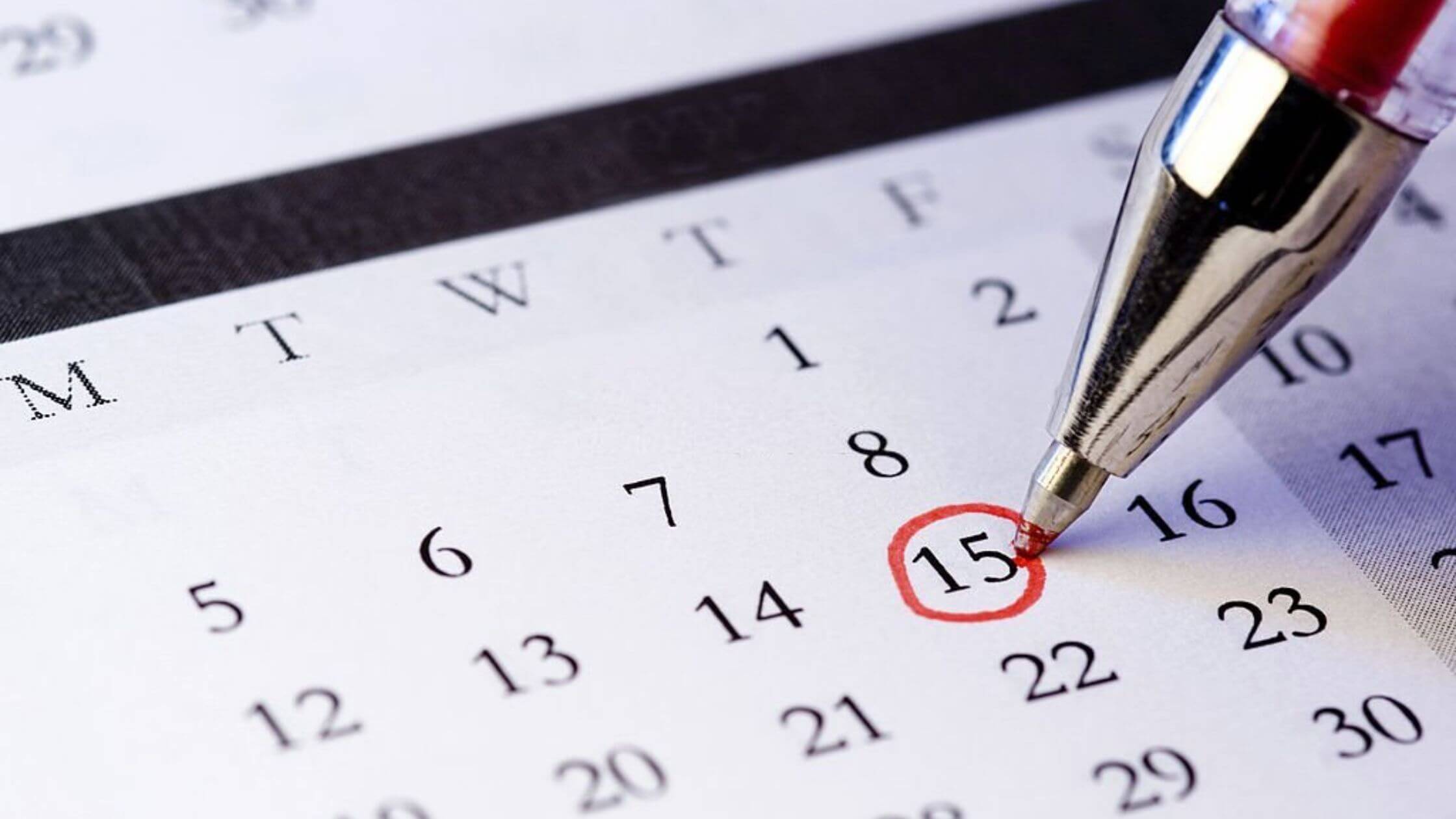

Prepare For and Ace Your PMP Exam in Just 10 Days
So, everyone says you should take 35 hours to prepare for the PMP exam. What they don’t say is that if you’re in a time crunch, or prefer to compress your timeline, you can actually prepare effectively in just 10 days.
Pro Tip: Keep in mind that everyone is different, and this approach might work well for some, who prefer to dedicate big chunks of time and complete it faster.
Others will benefit more from a ‘slow and steady approach, spread over several weeks. Know yourself and choose the approach that will make your time investment work best for you!
Shorter Timeline
If you want to prepare for the exam in this shorter timeline, here are some tips.
You will start out exactly the same way regardless of how long you intend to spend preparing: Create a schedule and a plan. Use your finely honed project management skills to create a really robust schedule for yourself, complete with milestones, dependencies, and key resources identified. This will help you truly maximize the preparation in your 10 days and ensure you’re ready by your scheduled exam date.
PMP Practice Questions
Because you’re not messing around with weeks and weeks, you need to be laser-focused with your approach.
We strongly recommend you consider a course to structure your preparation and so you don’t accidentally overlook any key points. You’ll definitely want a course that meets the requirements for your project management hours, which will help you top off any gaps in your training hours AND you’ll know its credible content.
You’ll also want to be sure to choose a course that includes practice questions and exams, and which you can work through at your pace. Bonus is the ability to tap into a community for support, if available.
PMP Exam Prep Course
The Brain Sensei PMP Exam Prep Course includes a range of interactive modules, practice questions and exams, content summaries and self-assessments, and access to a private Facebook group where you can ask questions if you get stuck, get support, and compare notes. If you’re preparing for your exam in a compressed timeline, this is a great option with everything you need at your fingertips.
Don’t just plan to do a bunch of reading. With your compressed timeline, practice questions will be a critical resource in helping you to identify areas where you need to do a deeper dive and brush up on specific topics. PMP exam questions are scenario-based, and the scenarios can be varied. So, just reading the content doesn’t mean that you can effectively apply your knowledge in situations, and when you are on the clock writing the actual exam. If your timeframe is compressed, you need to be strategic with the resources you draw on.
Speaking of resources, you can’t go wrong with Brain Sensei’s Complete PMP Exam Prep Course. It’s online, so you can do it anytime, anywhere, and it’s a great way to maximize the time you invest – and it’s not boring! The unique storytelling and spaced repetition system keep it interesting AND have better learning outcomes. There are mini-quizzes and exams at the end of each module to test your understanding and make sure you stay on track, too. And that’s not all: there are four complete ‘practice exams’, with questions and a format that mimics the actual PMP exam so you can confirm your readiness!
PMBOK® Guide
You’ll also want to make sure you have access to or a copy of the A Guide to the Project Management Body of Knowledge (PMBOK® Guide), published by PMI. You’ll be glad to hear that with the Brain Sensei prep course guiding you, you’ll only need to read some sections of the Guide for important topics where you struggled on the practice questions. This guide is written in PMI language and will be a great reference tool for areas you need to deep dive and master to be successful in the exam.
Some Key Points About Questions
Your compressed timeline prep will focus on practice questions as a way to identify gaps where you need more learning. So, having a good understanding of what to expect, the types of questions you’ll face, and tips for answering questions is extremely important for you.
When you are taking your exam, the minute you read a question, you should be able to tap into your strategy to solve it, which will speed up your ability to answer more quickly. The key here is to be able to quickly identify the question type.
Types of Questions
The exam includes a variety of different styles of questions as a way to test your project management knowledge as well as your skills in tackling exam questions.
Some are short and direct, some are longer (spanning 3 or more lines), some are situational or scenario-based (providing you with a description of a situation and asking you the next step), some are formula-based (requiring you to select and recall the most appropriate formula to calculate an answer – and you need to have memorized the formulas), and some are based on ITTO (asking you about the Inputs, Tools and Techniques, and Outputs of project management processes).
When you read a question, being able to categorize it will help you get to an answer more quickly.
PMI Question Structure
Something to keep in mind: One challenge with this exam is understanding “how” PMI structures their questions and what they expect – not necessarily what you would do in a given situation, but what PMI would instruct you to do.
Remember: This is a test of your mastery of the project management body of knowledge, not a demonstration of what’s worked for you in your hours of project management experience. Don’t skimp on topics you think you know based on your experience. Be sure to thoroughly test and evaluate all areas so you know where you need to focus and you invest your time on the topics where you need to level up the most.
In the questions, also watch for specific keywords that can have significant impacts on the correct answer. The words to watch out for are “most likely”, “least likely”, “best”, “not”, and “except”. Glossing over one of those words could easily lead you to choose an incorrect answer.
Another tip when reading questions is for the longer ones, read the last sentence of the question and the answer choices first. This gives you clues on what to look for when you read the full scenario in the question and will help you zero in more effectively and more quickly on the correct response.
Situational Questions
Watch out for situational questions where several answers might be okay: You’re asked to choose the best answer.
Read all options carefully to ensure you select the answer that is best based on the PMI training and perspective – and remember the tip about not reverting to your experience, particularly in situational questions.
It’s worth saying again, this is not a test of your experience, and it’s a test of your comprehension of the PMI body of knowledge.
PMP Practice Exams
So, practice questions. That’s it? Nope, another skill to invest some of your valuable time in is practice exams. This can help you be certain that you’re ready to focus for four hours, will build your confidence for exam day, and will give you a chance to work out any wrinkles.
Are you budgeting your time well? If you’re completing the exam online, practice in the space you’ll use for the real thing, and at the same time of day you are scheduled to write the exam.
Is your chair comfortable? How’s the lighting in the room at the time of day you’re going to do the exam? Are your keyboard and mouse in good order?
Psychological Preparation
Remember, the PMP Exam is about your knowledge as well as your psychological preparation. The 4-hour exam period is a test of your stamina as well as a test of your project management knowledge. Never underestimate the challenge of having to sit continuously in front of a computer screen, concentrate, and solve 180 questions with various levels of difficulty.
As a general rule, you want to get to a point with practice exams where you’re consistently getting scores of more than 80%. When you are at that point, it’s a pretty clear indication that you can pass the actual exam.
Other Resources
Also remember, if you chose to become a PMI member, maybe for the price break on the exam fee or because it sounded fun, you have access to resources from PMI and a new network of project management professionals.
Drawing on this network can help you stay plugged into any changes or new developments in the field. You can also tap into project management experiences that others have, which can help you crack some of the difficult scenario-based questions.
And if you’re using the Brain Sensei prep course, don’t forget the Facebook group: this is another amazing resource with real people to answer questions and help you along the way
Whatever you do, keep in mind the two most important tips from people who’ve had success passing the exam: Budget and use your prep time strategically, and be sure to practice.
Sign-up for a 7-day free trial! Try the first two modules of Brain Sensei’s story-based PMP and CAPM Exam Prep courses and a mini practice exam and see how it all works
Conclusion
Preparing for the PMP exam in just 10 days requires a focused and efficient study plan. By following the step-by-step guide outlined in this article, you can make the most of your limited time and increase your chances of success. Remember to familiarize yourself with the exam format, thoroughly review the PMBOK guide, utilize exam prep materials, focus on weak areas, study exam-taking strategies, review key formulas and concepts, and finally, take a full-length practice exam.
With dedication and effective preparation, you can approach the PMP exam with confidence and increase your likelihood of obtaining the PMP certification.
Good luck with your exam!
Looking for More Practice? Download Your Free PMP Sample Exam (PDF) – 180 Questions
Are you ready to test your PMP knowledge? Practicing with real **PMP exam sample questions** is one of the best ways to prepare.
To help you get started, we’re offering a **free downloadable PMP sample exam (PDF)** with realistic **PMP model questions** to assess your skills.
What You’ll Get in Your Free PMP Sample Exam
- Realistic PMP Exam Questions: Test your knowledge with world-class PMP instructor crafted questions.
- Instant Access: Download the PDF and start practicing right away.
Fill out the form below to receive your free PMP sample exam now!
Get Your Free PMP Sample Exam Now!
Download a Full FREE Sample PMP Exam! Enter your information and get instant access to a downloadable and printable Free PMP Exam PDF with 180 PMP practice questions
Have you led projects and are looking to earn a project management certification? You might be interested in learning about how lucrative this can be. Check out these articles.
13 PMP Benefits Once You Get The PMP Certification
No experience leading projects but still want to get into project management? No problem! Check out these articles.
CAPM Certification Eligibility
What is a Certified Project Manager; How do I get PM Certifications


